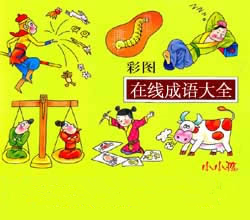英文读后感之呼啸山庄读后感
Published in 1847, WUtheRING HEIGHTS was not well received by the reading public, many of whom condemned it as sordid, vulgar, and unnatural--and author Emily Bronte went to her grave in 1848 believing that her only novel was a failure. It was not until 1850, when WUTHERING HEIGHTS received a second printing with an introduction by Emily's sister Charlotte, that it attracted a wide readership. And from that point the reputation of the book has never looked back. Today it is widely recognized as one of the GREat novels of English literature.
Even so, WUtheRING HEIGHTS continues to divide readers. It is not a pretty love story; rather, it is swirling tale of largely unlikeable people caught up in obsessive love that turns to dark madness. It is cruel, violent, dark and brooding, and many people find it extremely unpleasant. And yet--it possesses a grandeur of language and design, a sense of tremendous pity and GREat loss that sets it apart from virtually every other novel written.
the novel is told in the form of an extended FLASHback. After a visit to his strange landlord, a newcomer to the area desires to know the history of the family--which he receives from Nelly Deans, a servant who introduces us to the Earnshaw family who once resided in the house known as Wuthering Heights. It was once a cheerful place, but Old Earnshaw adopted a "Gipsy" child who he named Heathcliff. And Catherine, daughter of the house, found in him the perfect companion: wild, rude, and as proud and cruel as she. But although Catherine loves him, even recognizes him as her soulmate, she cannot lower herself to marry so far below her social station. She instead marries another, and in so doing sets in motion an obsession that will destroy them all.
WUtheRING HEIGHTS is a bit difficult to "get into;" the opening chapters are so dark in their portrait of the end result of this obsessive love that they are somewhat off-putting. But they feed into the flow of the work in a remarkable way, setting the stage for one of the most remarkable structures in all of literature, a story that circles upon itself in a series of repetitions as it plays out across two generations. Catherine and Heathcliff are equally remarkable, both vicious and cruel, and yet never able to shed their impossible love no matter how brutally one may wound the other.
As the novel coils further into alcoholism, seduction, and one of the most elaborately imagined plans of revenge it gathers into a ghostly tone: Heathcliff, driven to madness by a woman who is not there but who seems reflected in every part of his world--dragging her corpse from the grave, hearing her calling to him from the moors, escalating his brutality not for the sake of brutality but so that her memory will never fade, so that she may never leave his mind until death itself. Yes, this is madness, insanity, and there is no peace this side of the grave or even beyond.
It is a stunning novel, frightening, inexorable, unsettling, filled with unbridled passion that makes one cringe. Even if you do not like it, you should read it at least once--and those who do like it will return to it again and again
共2页,当前第1页1 相关作文: 妈妈你是我的百科全书、阳台上的小鸟、飘飘洒洒的雪、关心200字、生活中的启示、学跳桑巴、参观上海航海博物馆、我真后怕、热闹非凡的亲子运动会、拔牙记热门作文成语素材
- 哀感顽艳 原意是指内容凄切,文辞华丽,使愚笨和聪慧的人同样受感动。后多用来指艳情的小说、戏曲、电影中的感人情节。
- 匪夷所思 匪:不是;夷:平常。指言谈行动离奇古怪,不是一般人根据常情所能想象的。
- 分我杯羹 羹:肉汁。楚、汉相争时,刘邦答项羽的话。比喻从别人那里分享一分利益。
- 按甲休兵 收拾起铠甲武器。比喻停止军事行动。
- 风不鸣条 和风轻拂,树枝不发出声响。比喻社会安定。
- 匪夷匪惠 夷:殷末周初的伯夷;惠:春秋时鲁国的柳下惠。既不是伯夷,又不是柳下惠;不具备这两位贤人的品德。形容才德不高而又驾驭的人。
- 分茅裂土 原指古代帝王分封诸侯时举行的仪式。后称分封诸侯。
- 拔犀擢象 擢:提升。比喻提拔才能出众的人。
- 诽誉在俗 诽:指诽谤;誉:赞扬;俗:风气、习惯。诽谤或赞扬在于当时的风习。后来引申指风气、习惯的作用非常大。
- 挨肩擦背 形容人多拥挤。
- 飞黄腾达 飞黄:传说中神马名;腾达:上升,引伸为发迹,宦途得意。形容骏马奔腾飞驰。比喻骤然得志,官职升得很快。
- 薄寒中人 薄寒:轻微的寒气。中人:伤人。指轻微的寒气也能伤害人的身体。也比喻人在衰老或患难之中时经不住轻微的打击。
- 补阙灯檠 阙:缺;灯檠:灯架。没有灯架,用人充作灯架。旧时讽刺男人惧内。
- 肥马轻裘 裘:皮衣。骑肥壮的马,穿轻暖的皮衣。形容阔绰。
- 不伏烧埋 伏:屈服;烧埋:烧埋银钱,旧时官府向杀人犯追缴赔给死者家属的埋葬费。比喻不伏罪或不听劝解。
